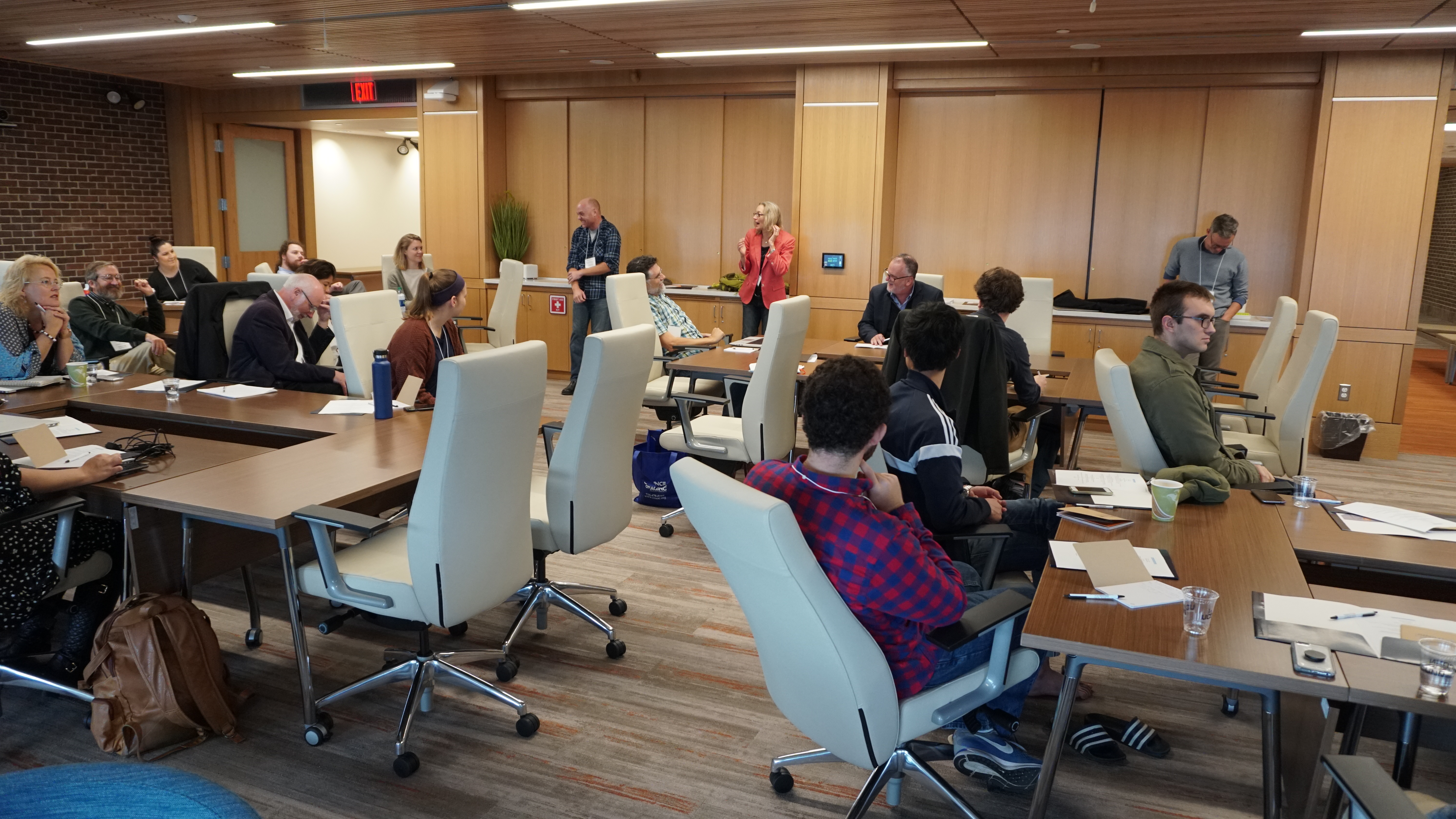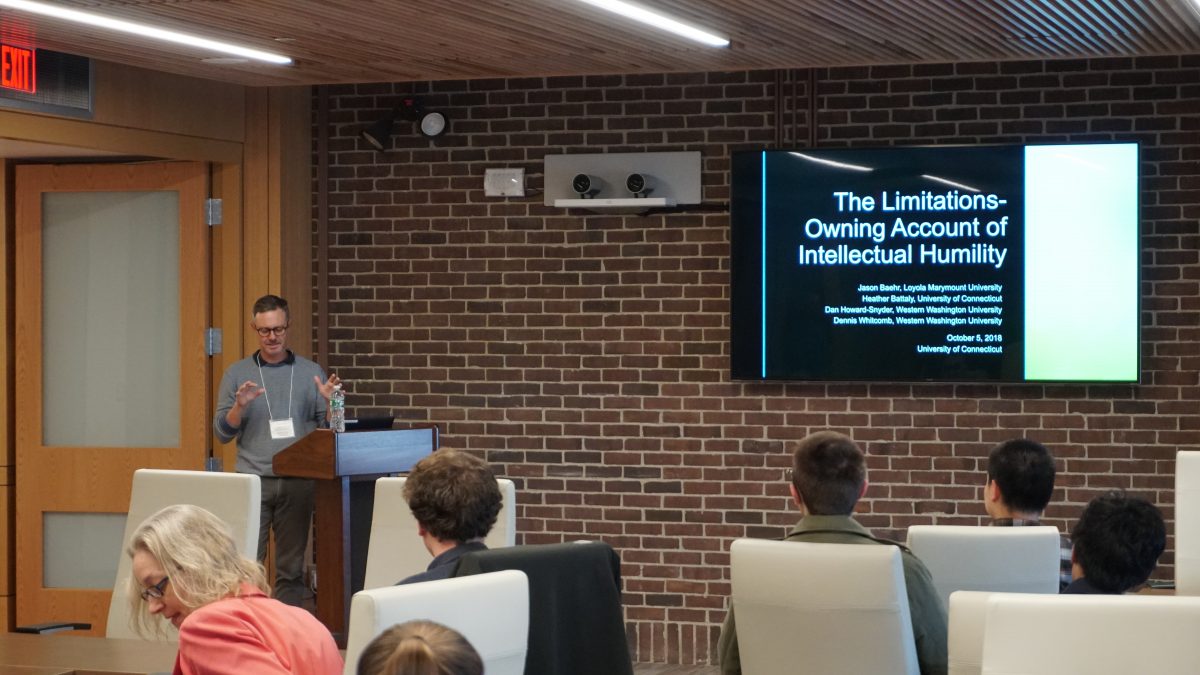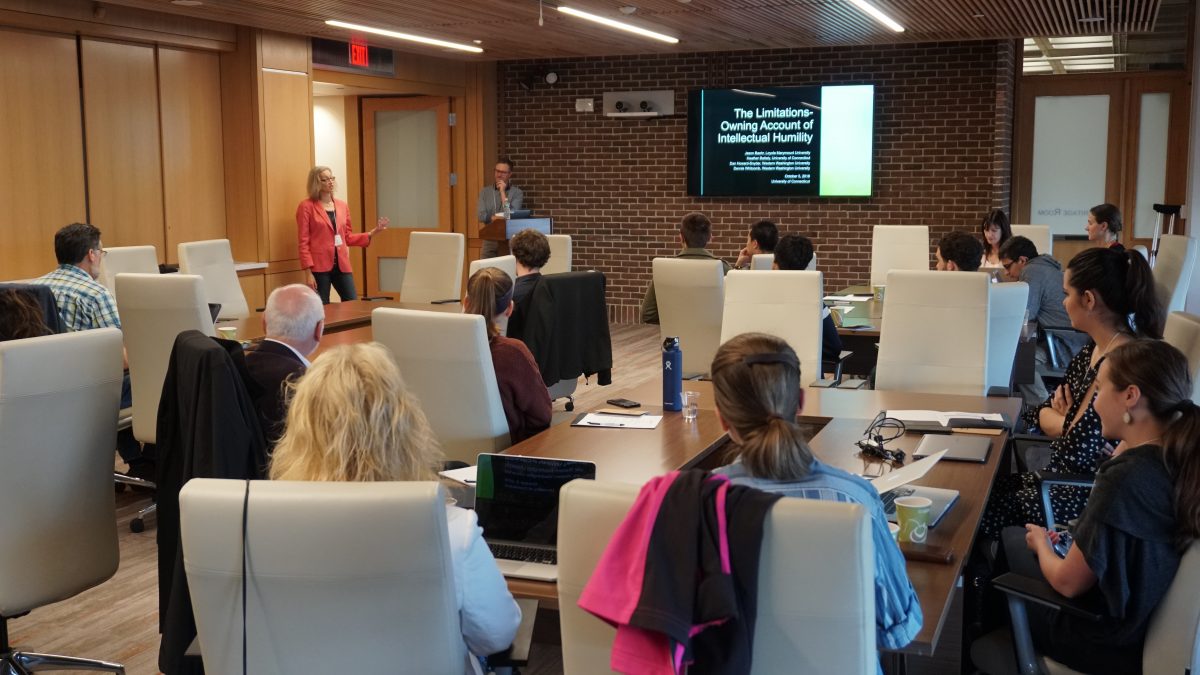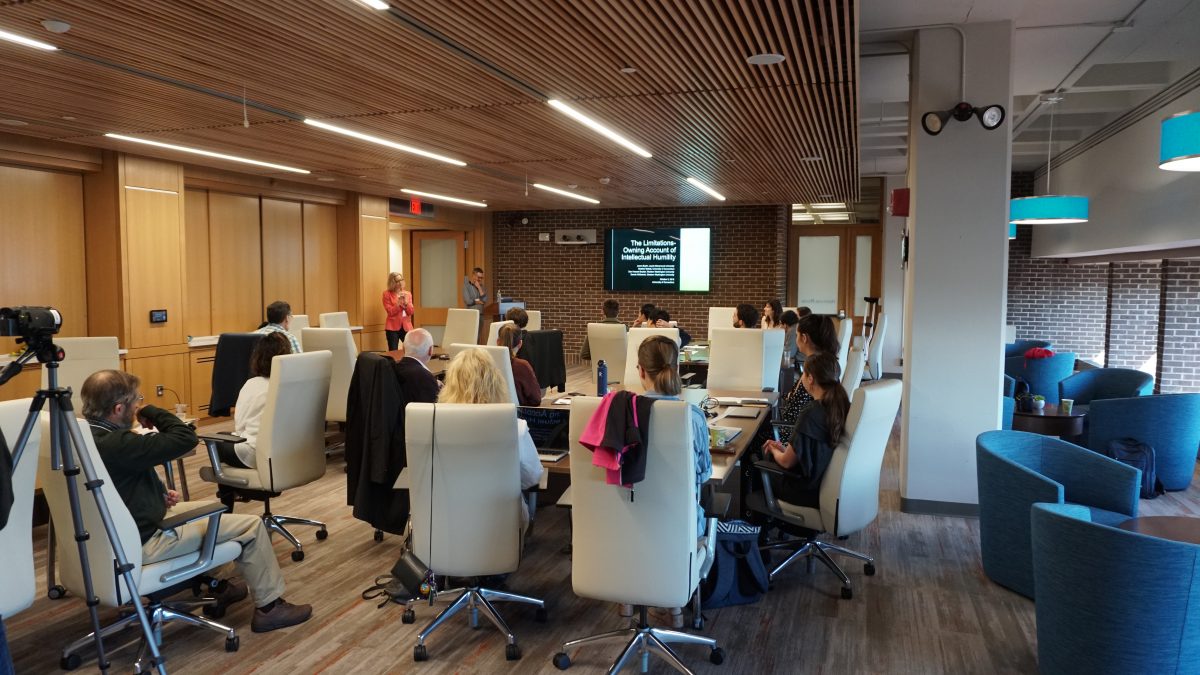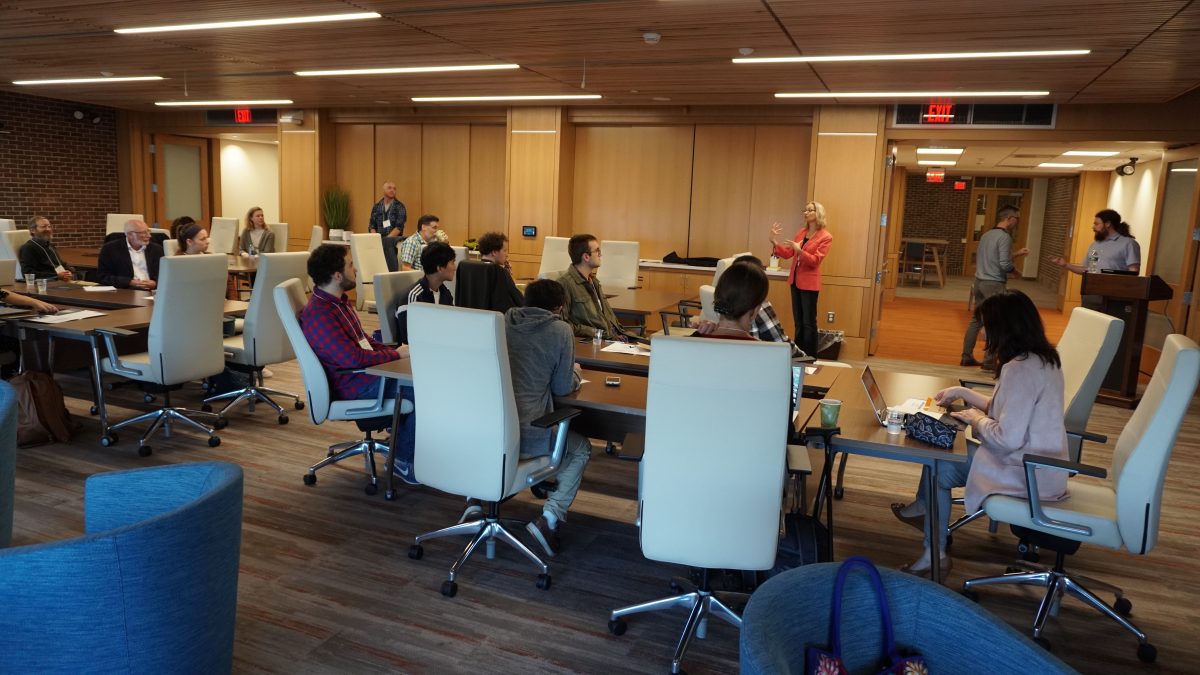The intellectual Humility in Education Symposium session on Educating for Intellectual Humility: Countering Arrogance and Servility was held on Friday Oct 5. 2018.
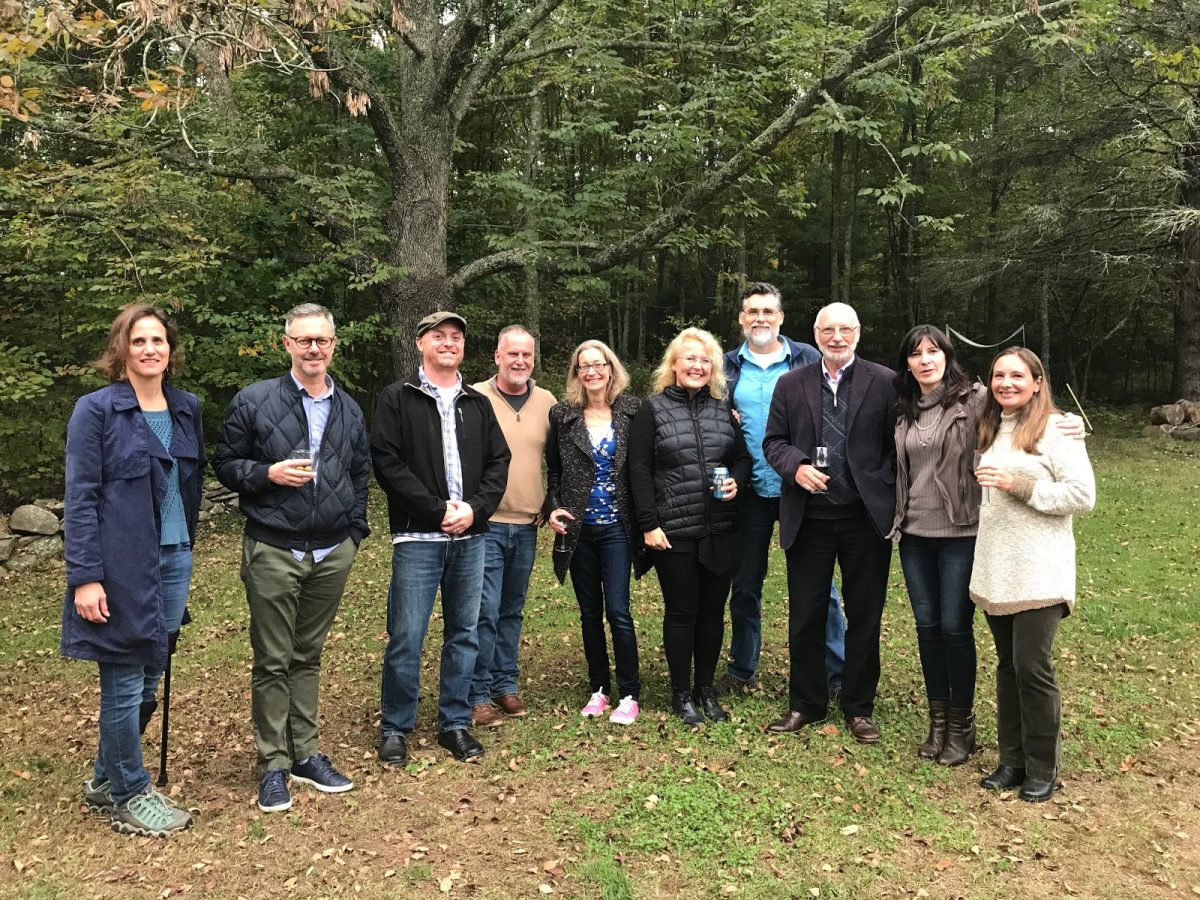
Educating for Intellectual Humility: Countering Arrogance and Servility
On Friday, October 5, 2018 an interdisciplinary group of faculty, graduate students and undergraduate students came together for a day-long workshop to investigate the following questions, “How important is it to know what you know? How important is it to know what you don’t know?”
The speakers included philosophers, applied linguistics, mathematicians, and human rights educators, who presented their research on the topic of facilitating intellectual humility in education.
The day started with presentations by philosophers Jason Baehr (Loyola Marymount University), Heather Battaly (UCONN), Daniel Howard-Snyder (Western Washington University), and Dennis Whitcomb (Western Washington University) which explained the Limitations Owning view of intellectual humility. Their key claim is that intellectually humble people are aware of and own their own intellectual limitations, for instance, their cognitive mistakes or gaps in knowledge. In contrast, arrogant people are unaware of their limitations or pretend they don’t exist, whereas servile people focus on theirs too much. In discussions following the presentations the workshop participants addressed contexts in which intellectual humility might not be beneficial, such as – at times – for the underserved or the oppressed.
In the next interdisciplinary presentation, Michael Byram (Durham University), Fabiana Cardetti and Manuela Wagner (UCONN) shared their investigation on the interrelations between intellectual humility and intercultural citizenship, a theory developed by Byram (2008). They also presented and elicited feedback for their research plan for an empirical study in which they collaborate with world language and mathematics teachers in two public schools to better understand how intellectual humility and intercultural citizenship can mutually enrich each other in practice.
The afternoon began with a presentation by Sandra Sirota (UCONN) about her study of intellectual humility among high school students in human rights classes. She presented the connection between intellectual humility and human rights education, which can be found in such shared values as consideration and respect for the dignity of others. Sirota discussed how the implementation of a deliberation skills curriculum in human rights classes influenced different aspects of students’ intellectual humility. This was followed by a generative discussion with the entire audience about how deliberation may also play a role in other virtues and intellectual characters.
The organizers were pleased to see that there was a distinct workshop atmosphere as participants tried to wrap their minds around the question of how can we facilitate the development of intellectual humility in education. They hope that this event leads to similar interdisciplinary workshops that explore intellectual humility, and ways of countering arrogance and servility.
